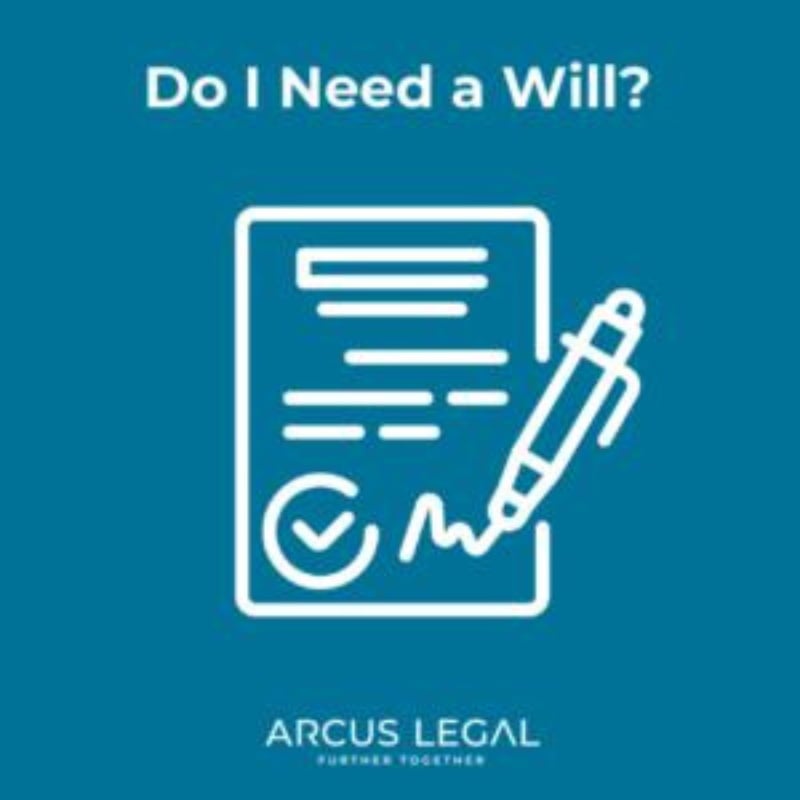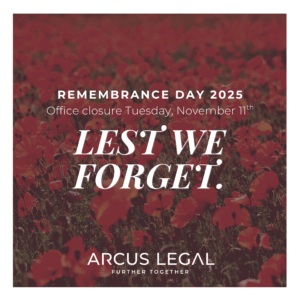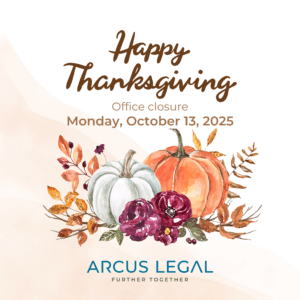With springtime upon us, and preparing for tax season, many of us may have estate planning on the mind. You may be asking yourself “Do I Need a Will?”.
In Gregg Knudsen’s, “Do I Need a Will?” you will learn about Wills and the laws under our provincial jurisdiction in Nova Scotia regarding your Estate Planning.
Do I Need a Will?
By Gregg W. Knudsen, TEP
This is a commonly asked question of any lawyer who practices in this area of law. The answer is “Yes, everybody should have a Will”. There are several reasons. First, to distribute your assets as you want them to be distributed. The second is similar, to take care of your loved ones and/or to take advantage of planning opportunities in doing so. Third, is to have the control of appointing a representative who you feel can manage your estate after your passing. On a more somber note, it is impossible to know if somebody needed a Will until they have died without one. By then, the deceased’s family is often left with hard feelings and a confusing legal and financial mess. Some of our clients have been motivated to have their Wills prepared because they have had that experience as either a personal representative or a beneficiary, because a family member died without a Will.
This article deals with Wills and the law recognized under provincial jurisdiction in Nova Scotia. If you are reading this from outside Nova Scotia, we recommend discussing these issues with a lawyer in your province or state.
First Nations
The Will and Estate requirements of Indigenous persons in Nova Scotia and other parts of Canada are governed by federal statute and regulations, particularly for those persons who live in communities legally known as “reserves”. Although there can be significant differences in legal requirements and jurisdiction, the practical suggestions and Will structures mentioned in this article are also consistent with those recognized in that legislation. When meeting with us, we will discuss those legal differences should they apply to you. Of course, be sure to mention any wishes related to culture, heritage or custom that are important to you.
What is a Will?
A Will is a document in writing that expresses the wish of how the Will maker (called the “testator”) intends to transfer their assets to their beneficiaries after death. A Will is ambulatory, meaning it can be changed during the testator’s lifetime. A Will only takes effect on the death of the testator. It is not enforceable until then. Furthermore, it does not always require probate to be effective.
Probate is the formal confirmation by the Courts that a Will is the person’s last Will and the personal representative (or executor) has authority to act. Probate may be required depending upon factors such as the nature of the assets in the deceased’s name (e.g. in Nova Scotia, land in a deceased’s sole name or a “tenant-in-common” interest always requires probate), the value of financial assets (each financial institution has a different threshold for when probate is required), location (some out of province financial institutions or governments insist on probate) and Court proceedings in any jurisdiction.
Requirements of a Will
The most common type of Will is the Formal Will, so-called because for many years it was the only type permitted in most provinces (per s. 6(1) of the Wills Act). A Formal Will is in writing (hand-written, typed or other hardcopy) and signed at the foot by the testator before two witnesses who have also signed. The witnesses must observe the testator and the other witness sign the Will. Quite often, the pages are initialed by the testator and witnesses to limit allegations of tampering, such as substituting pages. A Holograph Will is a Will written entirely in the handwriting of the testator but not witnessed. The testator signs and dates the document at the foot. Until the statutory amendment was proclaimed in force in 2008 (s.6(2)), for many years, a Holograph Will was not valid in Nova Scotia unless prepared by Canadian Armed Forces personnel while in action. We do not recommend drafting your own Will. The consequences of mistakes while drafting can be far reaching and costly.
Parties to a Will
Testator/Testatrix – Person who is making a Will (Testator = male Will maker / Testatrix = female Will maker).
Executor – Party or parties appointed by the testator to administer the estate (as referred to as “personal representatives”). The role can be very complex and time-consuming. The executor should be someone capable of performing the tasks including record keeping and financial management. They should be able to maintain an objective position with creditors and beneficiaries. Your executor can be a trusted and respected family member, a friend, a professional such as an accountant or lawyer or a trust company. An executor may be entitled to compensation for acting as such.
Beneficiary – The person, class of persons (e.g. “all of my grandchildren”, “the children of my sister”, etc.) or a charitable institution, who receives a gift under a Will. In general, you can choose your beneficiaries if you provide adequately for your dependents (spouse and children), or the distribution may be challenged in Court.
Who Can/Should I Benefit?
You are able to benefit whomever you like provided you have first fulfilled your obligations under several key statutes:
Matrimonial Property Act – Married spouses are deemed to have a 50% interest in all matrimonial assets, regardless of in whose name they are registered. Death of one spouse triggers a division of assets. Therefore, the Will must address this adequately. Furthermore, these rights and obligations are sometimes addressed in a marriage contract, separation agreement or corollary relief order. In Nova Scotia, “common law spouses” are not subject to this legislation, whether on death or separation, unless they have chosen to be “registered domestic partners”.
Testators’ Family Maintenance Act (“TFMA”) – This statutes mandates that a when a Will is prepared, the testator must make adequate for the maintenance and support of his or her dependents. A dependent is the surviving spouse and children. The test for adequacy is based on the financial means of the testator and the dependents. The Courts Will also consider the character and conduct of the dependent that may disentitle them to a claim from the estate.
In other words, when making your last Will, you do not always have the last word.
What happens if I do not have a Will?
We said above that a Will distributes assets according to your wishes. If you die without a Will, your assets are distributed according to the Intestate Succession Act. That legislation defines a rigid scheme of distribution for an individual who dies without a Will. For example, if a married person dies with only a spouse surviving, everything is distributed to the surviving spouse. Simple enough, but then it becomes more complicated. If the deceased has a child as well, the spouse is entitled to elect to receive the house or the first $50,000 (commonly called “the spousal share”), the remainder of the estate is distributed to the spouse and child equally. If the deceased had more than one child, the remaining assets (net of the spousal share) are distributed as one-third of the estate to the spouse and two-thirds to the children. If there is no spouse or children, all assets are distributed to the deceased’s parents, but if the parents are deceased, then to the deceased person’s siblings. If a married couple is involved and death occurs simultaneously, the Survivorship Act prescribes who dies first, namely the youngest is deemed to survive the oldest, unless there is a Will. Thus, if you do not have a Will, it is possible for the assets to be distributed to the younger spouse’s children or other relatives to the exclusion of the older spouse’s family. Furthermore, the Intestate Succession Act does not recognize common law spouses, step-children or others who may be close to you. It does not address effective tax planning, charitable giving, business succession or other unique and/or necessary strategies. The Probate Act requires the administrator of the estate to post a bond, which is an added cost to the estate. Finally, without a Will, you do not have the benefit of using trusts.
A Word on Trusts
A trust is a useful part of an estate plan. Trusts are often included in many Wills. A trust is a legal relationship where assets are managed by a trustee for one or more beneficiaries. Many gifts under a Will are distributable outright. A trust specifies the amount, time and conditions when assets can be transferred. A Trust in a Will is called a testamentary trust and can be a very effective strategy. For example, grandparents who have a teenage grandchild in Grade 11 in Halifax may set up a testamentary trust in their Will for their grandchild’s education. They may stipulate conditions such as the amount held in trust, payable on what terms (e.g. income and capital sufficient to pay tuition, residence and supplies, such as technology, books), and who should receive it, (e.g. the beneficiary or directly to a university or college on behalf of the grandchild). The possible terms and uses of trusts are extensive and individualized. They can be prepared in a Will or outside in a separate trust document. We would be pleased to answer any questions or concerns you have about trusts.
Below are several of the most commonly asked questions about Wills:
Do I still need a Will if my family knows what I want?
Yes. Your family has no way to enforce your wishes as there is nothing in place. Similarly, what you have in place may not be current. In fact, the beneficiaries of an outdated Will or the dependents under the Testators’ Family Maintenance Act have enforceable rights. Finally, without a Will, your best hope is that your family members know what you want and can execute it without controversy. There is no guarantee.
Do I need a Will if I have a beneficiary designation signed for everything or everything is owned jointly?
A Will should be part of a larger, more complete Estate plan. Typically, the plan consists of a Will, Power of Attorney, Personal Directive and other strategies. Beneficiary designations are also part of that plan. As a strategy, joint ownership does not necessarily pass ownership on to the surviving owner. A financial institution is only required to turn the asset over to the survivor. There have been many successful challenges to that strategy which yielded a completely different result than what was originally intended. The strategy should be considered with a lawyer as part of other planning. It can work, but it is not a certainty.
I have a Power of Attorney. Is that enough?
A Power of Attorney is a document which provides someone with authority to manage one’s financial and legal affairs during the person’s lifetime. It can be general or for a limited purpose. One that is designed to survive one’s incapacity is called an Enduring Power of Attorney. An Enduring Power of Attorney is an important tool in estate planning as it enables someone to manage your financial affairs when you lack capacity. However, a Power of Attorney is effective only when the donor (person making the Power of Attorney/granting the authority) is alive. Your Will takes effect only on death. You should discuss both options as part of a complete estate plan.
How often should I change my Will?
There is no legally required number of times a Will should be changed but we recommend reviewing it every 3-5 years or when major changes to your life have taken place. Life events such as births, deaths, marriages or divorces are all important events to prompt a review of your Will. Buying or selling of property or a business also might prompt a review. Wills are written in contingent language so a review allows you to see what would happen once a contingency has occurred. For example, if a Will provides “if a child does not survive me then I give their share to their children”, then the birth of a first grandchild would prompt a review of the Will.),
Importantly, when changes to a Will are needed, do not make them on the Will itself. Rather, a new Will should be prepared or a document amending a Will, known as a Codicil, can be prepared.
What about guardianship of minor children?
Wills commonly include clauses appointing persons as guardians of minor children in the event of the death of both parents. In 2002, the Guardianship Act was amended to provide that two parents may appoint guardians of their children by any document prepared in testamentary fashion (i.e. like a Will). This document can be used during the parent’s lifetime, such as in the event of incapacity, and/or upon their death. Other provinces continue to use only guardianships after death. If a guardian is required for an adult child, these are usually made by way of a Court application.
Summary
Everybody should have a Will. A Will is an important component in an Estate plan. Indeed, many would argue that it is the most important. Above is listed several key reasons for having a Will. The most common reason of all is the peace of mind it brings knowing that your Estate is planned efficiently for the benefit of those most important to you.





